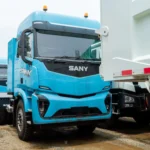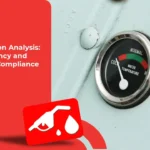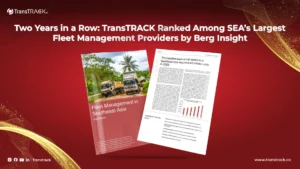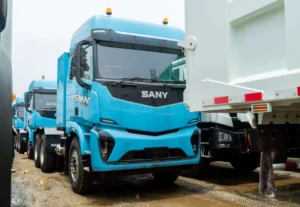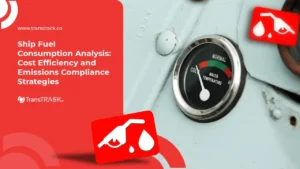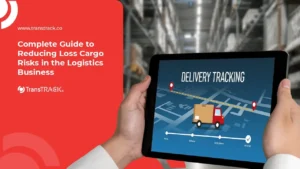Modern Vessel Monitoring Solutions to Improve Maritime Operational Efficiency and Safety
Posted on November 28, 2025 by Nur Wachda Mihmidati
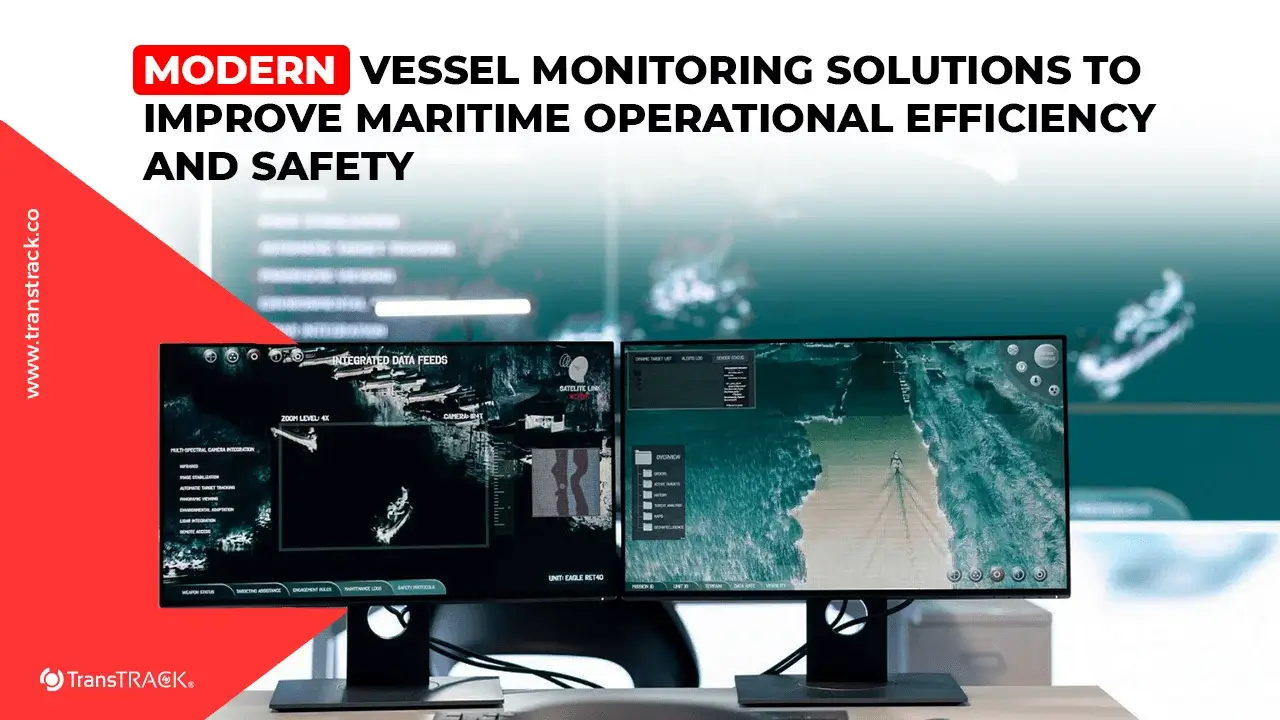
Vessel monitoring has now become an important element for shipping companies that want to improve operational efficiency and safety. With the increasingly advanced and rapid development of technology, sea fleet monitoring can be done in real-time from anywhere. This TransTRACK article will discuss the importance of vessel monitoring, the challenges in the shipping industry, and the comprehensive solutions that can be offered by TransTRACK.
What is meant by maritime vessel monitoring?
Vessel monitoring is a digital process of supervising ship movements. This system allows companies to monitor ship activities in real-time from anywhere. By implementing vessel monitoring, companies can ensure safer and more efficient continuity of maritime operations.
The main purpose of the marine vessel monitoring system
The main objective of a vessel monitoring system is to create safe and efficient maritime operations. This monitoring also helps companies reduce the risk of asset and cargo losses. With vessel monitoring, every shipping activity can be tracked and managed optimally.
Here are some objectives of vessel monitoring:
- Ensure the safety of ships, crews, and cargo.
- Optimize fuel usage and shipping routes.
- Provide full visibility for fleet management.
Challenges Facing the Shipping Industry Today
In the modern shipping world, vessel monitoring plays an important role in addressing various operational issues. These challenges will continue to emerge and can cause companies to suffer fatal losses. Here are some challenges faced by the shipping industry today:
Lack of visibility of naval fleet movements
- Ships are difficult to monitor when they are far from land.
- Coordination becomes slow and inaccurate.
- The risk of operational errors increases.
Risk of losing ships and delays in cargo delivery
- Bad weather can throw a ship off course.
- Companies often find it difficult to confirm the whereabouts of ships.
- Delays cause financial losses.
Difficulty monitoring engine performance and crew conditions
- Without sensors, engine damage is difficult to detect early.
- Crew conditions cannot always be directly monitored.
- Engine problems increase the risk of accidents.
High fuel and maintenance costs due to lack of monitoring
- Choosing a non-optimal route results in wasteful fuel consumption.
- Small damage can develop into major damage.
- Without monitoring of marine vessels, maintenance cannot be planned in a timely manner.
The Importance of Ship Monitoring Systems in Maritime Operations
Vessel monitoring has a significant impact on improving the reliability of shipping operations. With real-time monitoring, companies can make quick and accurate decisions. Therefore, vessel monitoring has become an essential element in modern maritime industry and operations. Here are some reasons why vessel monitoring is so important:
Increase fleet transparency and control
- All ship movements are recorded automatically.
- Management can monitor fleet conditions at any time.
- Historical data makes performance analysis easier.
Ensuring the safety of shipping and company assets
- Early warning can help prevent accidents.
- Companies can ensure compliance with ship routes.
- Reduce the risk of asset and cargo loss.
Helps with optimal route planning and fuel savings
- Choose the best route based on weather and ocean currents.
- Fuel consumption becomes more efficient.
- Operational costs can be reduced significantly.
Accelerate real-time data-driven decision-making
- The latest information is available at all times.
- Management can act quickly when there is a disruption.
- Improve response to emergency conditions.
Benefits of Implementing a Marine Vessel Monitoring System for Companies
Marine vessel monitoring not only provides visibility but also helps companies improve overall efficiency. This technology enhances security, reliability, and speed of service. Therefore, marine vessel monitoring is a strategic investment for maritime business development. Here are some of its key benefits:
Delivery time efficiency and operational cost reduction
- The right route makes the travel time shorter.
- Fuel consumption can be controlled well.
- Maintenance costs are reduced due to early detection of damage.
Prevention of lane violations and fuel misuse
- The system records all ship movements.
- Companies can prevent route deviations.
- Fuel consumption can be closely monitored.
Proactive monitoring of crew and ship asset safety
- Marine vessel monitoring detects abnormal conditions.
- Alarms and warnings make the crew more alert.
- Asset security is increased thanks to continuous monitoring.
Increased client satisfaction and delivery reliability
- On-time delivery increases customer confidence.
- Clients can receive ship position updates.
- The company’s reputation becomes more professional.
Vessel Monitoring System Solution from TransTRACK
TransTRACK offers integrated marine vessel monitoring technology with advanced systems. This solution helps companies maximize the performance of their marine and inland fleets from a single dashboard. TransTRACK’s marine vessel monitoring makes all operations more efficient and manageable.
Key features of the TransTRACK marine vessel monitoring system
- Live ship tracking 24/7.
- Engine, fuel and ship condition sensors.
- Automatic alert system when an anomaly occurs.
Integration with land and sea fleet management systems
- Facilitate coordination between transportation units.
- Data from ships and land vehicles is combined in one platform.
- Improve overall supply chain efficiency.
Real-time dashboard support and automatic alerts
- The data display is easy to read and quick to understand.
- Management receives notification when there is a risk.
- Speed up reaction to critical situations.
The advantages of TransTRACK technology in increasing port and shipping efficiency
- Speed up the loading and unloading process.
- Reduce ship queues at ports.
- Supporting the smooth running of maritime operations as a whole.
Conclusion
Vessel monitoring has a significant impact on efficiency, safety, and operational cost savings. With the right technology, shipping companies can operate more productively and responsively. TransTRACK solutions are the right choice for improving the operational quality of maritime fleets.
Optimize your fleet management with TransTRACK’s Vessel Monitoring System, which accurately and precisely monitors vessel movements in real time. Improve operational efficiency, ensure safe travel, and gain complete control over all vessel activities from a single dashboard.

FAQ
What are the benefits of a marine vessel monitoring system for shipping companies?
By using a vessel monitoring system, shipping companies will gain full visibility of ship movements. In addition, the vessel monitoring system can also reduce the risk of accidents and delays with integrated automatic notification technology. Of course, this system can also help companies save operational costs with more accurate calculations.
How does an IoT-based marine fleet monitoring system work?
First, sensors in the system will collect data from ships in real-time, the data is then sent via satellite or GSM networks, and complete information will appear on the vessel monitoring dashboard in real-time.
Can a ship monitoring system reduce operational costs?
Yes, because this system can help select the most efficient route. With the right route selection, fuel consumption will certainly decrease and ships can avoid dangerous routes, thus avoiding the risk of expensive engine damage.
How does ship monitoring help crew and cargo safety?
Vessel monitoring will provide early warnings when irregularities occur and things that can cause risks arise. This system will also ensure crews stay on safe routes and reduce the risk of cargo loss.
What are the key features of TransTRACK’s Vessel Monitoring System solution?
The main features of TransTRACK’s Vessel Monitoring System enable real-time vessel monitoring with integrated position tracking, fuel consumption monitoring, and engine performance monitoring. This solution is highly relevant for offshore operations that require high efficiency, accuracy, and reliability.
Recent Post
Topic :
 Bahasa Indonesia
Bahasa Indonesia




